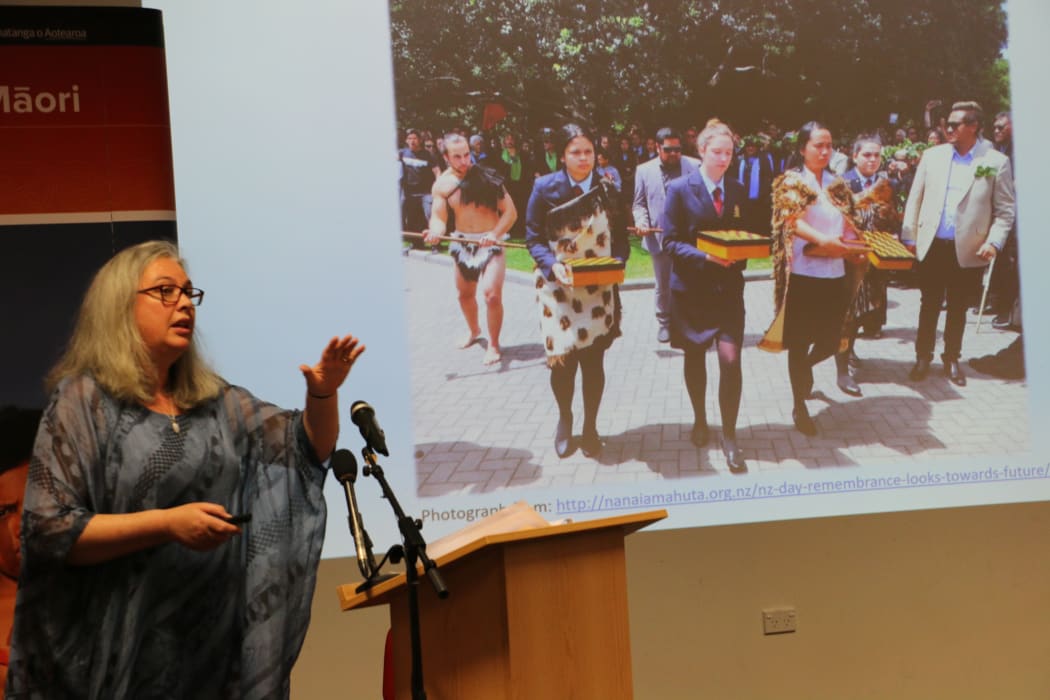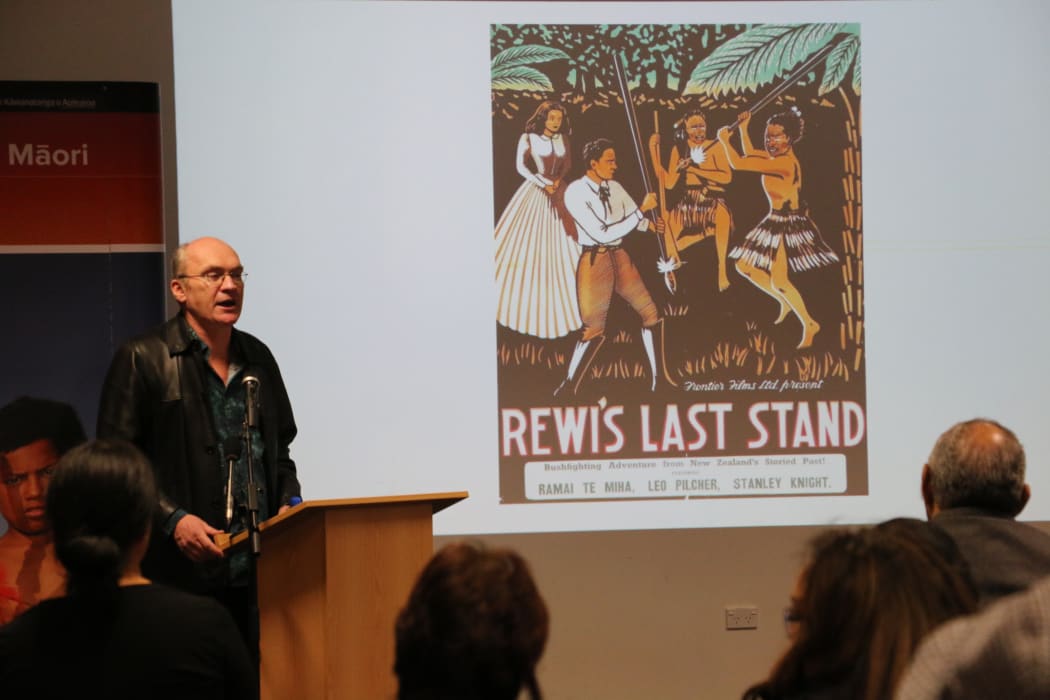The new school curriculum of Aotearoa's history is in the process of making its way into practice, and is likely to ruffle a few feathers along the way.

Dr Kidman discusses the petition presented by Otorohanga College students that supports the teaching of NZ Wars history in schools. Photo: RNZ/Justine Murray
Several years ago five researchers and authors set out on a journey to understand why there is so much denial in the way we look at and talk about Aotearoa's past.
Fragments from a Contested Past by Joanna Kidman, Vincent O'Malley, Liana MacDonald, Tom Roa and Keziah Wallis is the result of that work, and was published this month. The book is an effort to understand why we find it so hard to teach the difficult bits of our histories, and how to tell those stories better in future.
Colin Peacock talked to co-authors Joanna Kidman and Vincent O'Malley about the state of the nation when it comes to talking about our past.
The group's work was partly inspired by a petition organised in 2014 by Ōtorohanga College students who wanted to know more about the New Zealand wars and have them recognised with a day of remembrance, drawing national attention to the issue.
"We were really inspired by the young people ... that has led to a lot of changes in terms of the history curriculum and in terms of having national days of remembrance for the wars," Kidman said.
"In many ways that led us to thinking much more widely about, not just how the wars are remembered, but what we remember and what we actually choose to forget.
"The way has been led by young people in many cases, that growing articulateness about the difficult and violent colonial past has been a real source of inspiration, not just for us but I think for many who are working in the education field and elsewhere."
Kidman said state memory and tribal memory of past events often differ significantly.
"Our history has been difficult, but has often been portrayed as being a collective unified history, so we've missed out the messy bits.
"When I was at school I was taught that Captain Cook was a great hero, I was taught that he was the first person to discover Aotearoa - no-one ever told me about the murders and abductions of indigenous people ... I wish I had know about that, I wish I'd been given a more fuller picture of those voyages.
Kidman believes greater cohesion and unity will come from recognising the difficult aspects of New Zealand's history, and understanding that many issues are not done and settled, but continue to be dynamic.
"As we go into the teaching of the history curriculum in New Zealand schools some of those uncomfortable messy difficult violent histories they will make people feel a little bit uncomfortable at times, but they will give us a better way of understanding how we have got to where we are now through what has happened in the past.
"And that will give us a new way of looking at the kinds of future we can build as a nation."

Historian and author Vincent O'Malley Photo: RNZ/Justine Murray
O'Malley said an analysis made of the complaints made against the Ōtorohanga College students' protest showed those who opposed greater recognition of the New Zealand wars held a view of the country's history steeped in political nostalgia and idealism.
"So many of us didn't learn any New Zealand history at school, or if we didn't it was this mythical version where James Cook is a hero and New Zealand had the greatest race relations in the world and so on," he said.
"So for those people are confronted with an alternate reality, the one that for many Pākehā they began to see from the 1970s onwards, with Bastion Point, the Māori Land March and so on... there's this discomfort and unease among some people about that."
The book contains field notes from many different historical sites the researchers went to, some well known such as Battle Hill at Pāuatahanui in Porirua, and Boulcott Farm in the Hutt Valley, but some less well known as well outside of local iwi.
"One of the things we were trying to set out in the book is that this history is everywhere and people need to connect with the stories of the whenua that they live on, and hopefully that's something that will come through in the history curriculum," O'Malley said.
"Liana MacDonald's chapter on Battle Hill and Boulcott's Farm is quite topical because Battle Hill is along the side of Transmission Gully which has recently been announced as Te Aranui o te Rangihaeata, named after the rangatira that fought at Battle Hill and retreated up that gully afterward. So there's this history all around us, and it's embedded in the whenua, the land."

